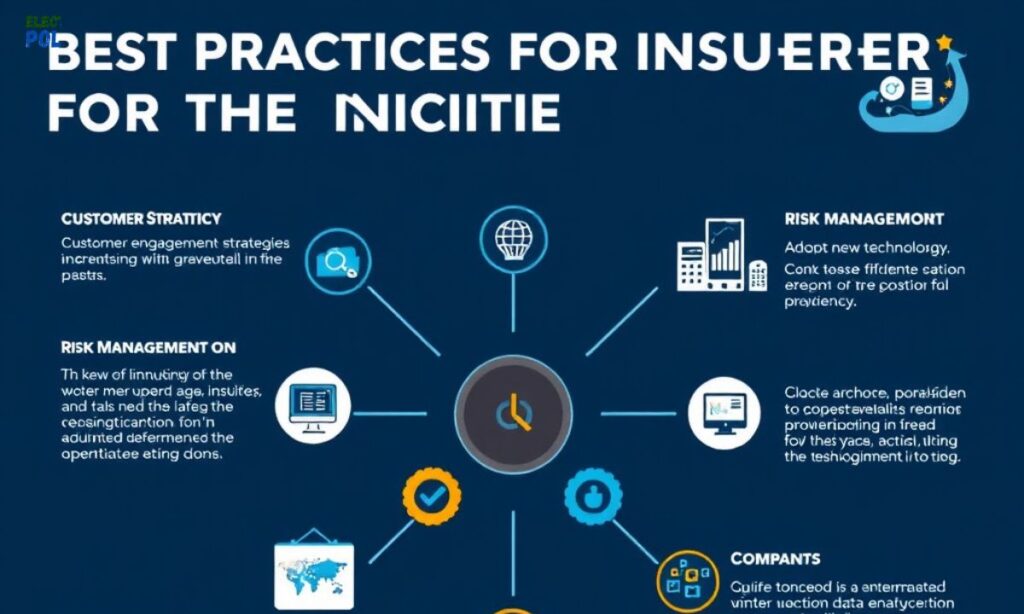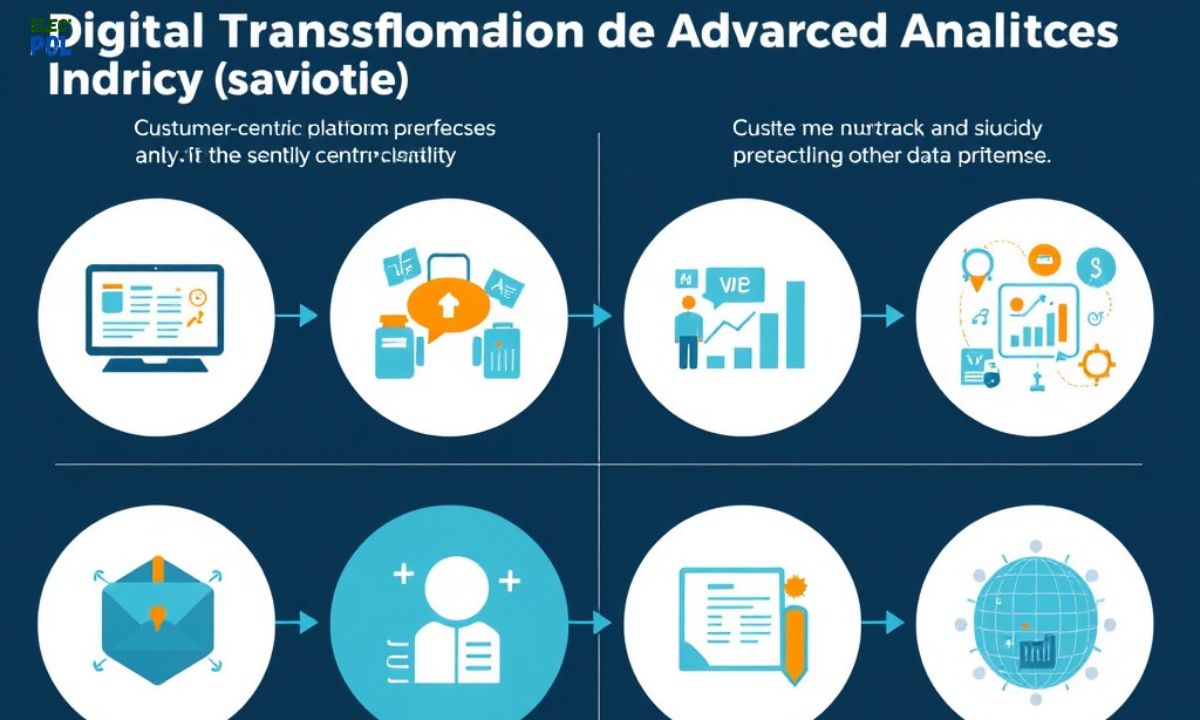Digital transformation is changing the insurance industry. Insurers are using technology to improve customer interactions and streamline operations. Advanced analytics helps companies make better decisions by analyzing data. This leads to more accurate risk assessments and personalized policies.
Insurers are adopting AI tools for efficiency and customer satisfaction. Machine learning algorithms detect fraud and enhance marketing strategies. Despite challenges like data privacy and legacy systems, the future looks promising.
Understanding Digital Transformation in Insurance
Digital transformation is reshaping the insurance industry. It involves redefining customer interactions and optimizing operations. Insurers are adopting new technologies to enhance service delivery.
Customer-centric platforms are emerging. Companies like Lemonade utilize AI for improved customer experiences. This creates a seamless interaction that enhances satisfaction and retention.
Role of Advanced Analytics

Advanced analytics is the backbone of decision-making. It helps insurers to make data-driven choices. Predictive analytics allows for better risk assessment and underwriting accuracy.
By leveraging big data, insurers can personalize policies. IoT devices gather valuable information. This data enables dynamic pricing models tailored to individual behaviors.
Key Areas Where Digital and Analytics Intersect
Digital tools and analytics are transforming insurance functions. Fraud detection is significantly enhanced by machine learning algorithms. These algorithms recognize patterns and identify fraudulent activities quickly.
Marketing strategies are also evolving. Analytics-driven campaigns target specific demographics effectively. This increases customer acquisition and retention rates significantly.
Read This Blog: The How of Digital and Analytics in Insurance Study Point
Challenges in Adoption
Despite its benefits, the adoption of digital and analytics faces challenges. Data privacy concerns are paramount. Insurers must comply with regulations like GDPR while personalizing services.
Legacy systems also hinder progress. Many insurers still use outdated infrastructures. This makes it difficult to integrate new technologies seamlessly.
The Road Ahead: Best Practices for Insurers

To succeed, insurers must invest in talent. Equipping teams with skills in machine learning and data science is crucial. Continuous training in these areas enhances operational efficiency.
Collaborating with fintech startups can foster innovation. Partnerships enable access to cutting-edge solutions. Insurers should also regularly update their digital strategies to keep pace with trends.
| Best Practices for Insurers | Benefits |
|---|---|
| Invest in talent | Enhanced skills and knowledge |
| Leverage partnerships | Access to innovative solutions |
| Continuous innovation | Staying ahead of market trends |
| Embrace advanced analytics | Improved decision-making |
| Focus on customer experience | Increased satisfaction and loyalty |
Frequently Asked Questions
What is digital transformation in insurance?
Digital transformation involves using technology to redefine operations and enhance customer interactions.
How do analytics improve risk assessment?
Analytics provide insights that help insurers predict risks more accurately.
What role does machine learning play in insurance?
Machine learning algorithms analyze data to identify fraud and optimize processes.
Why is data privacy important in digital insurance?
Data privacy ensures compliance with regulations and builds trust with customers.
What are the benefits of partnering with fintech startups?
Collaborations can lead to innovative solutions that enhance efficiency and competitiveness.
Conclusion
The how of digital and analytics in insurance is crucial for future success. Embracing advanced analytics and digital transformation will enhance efficiency and customer satisfaction. By overcoming challenges and implementing best practices, insurers can unlock new growth opportunities.
Investing in talent and leveraging technology will ensure they stay competitive in a rapidly evolving landscape. Adopting these strategies will lead to a more resilient and responsive insurance industry.

I’m passionate electric scooter enthusiast and the voice behind this blog. I’m here to share my expertise and insights with you. From in-depth reviews to problem-solving guides, my goal is to help you make the most of your electric scooter experience.








![Gomyfinance.com Invest: I Made $5,000 in My First Month [Real Results 2025]](https://electopolo.com/wp-content/uploads/2025/05/Gomyfinance.com-Invest-I-Made-5000-in-My-First-Month-Real-Results-2025-150x150.jpg)


